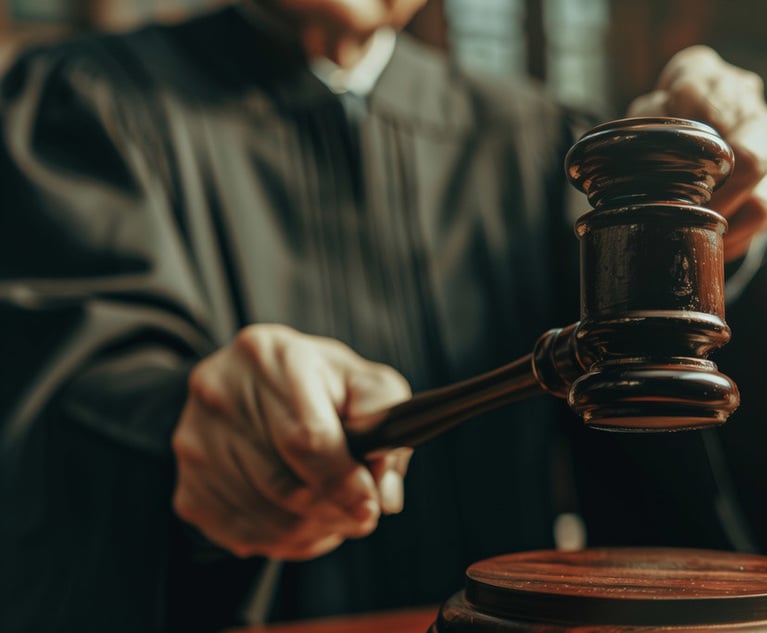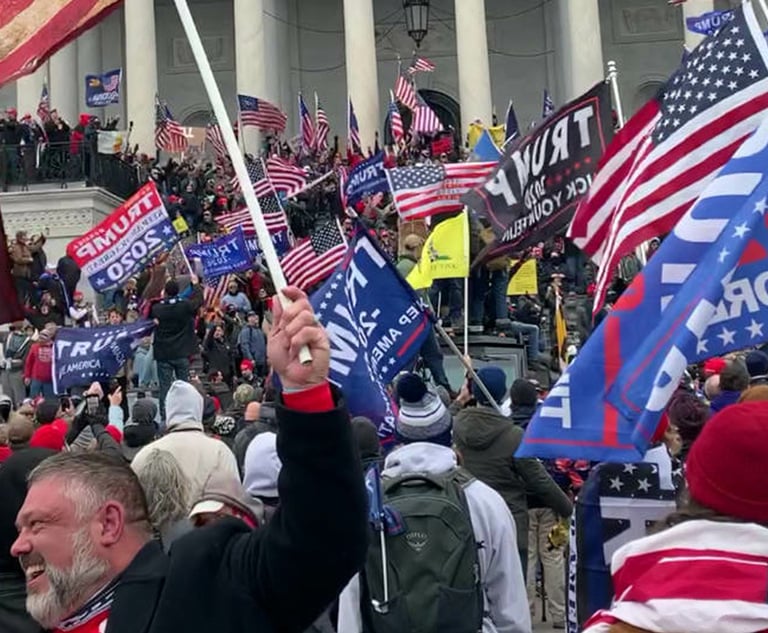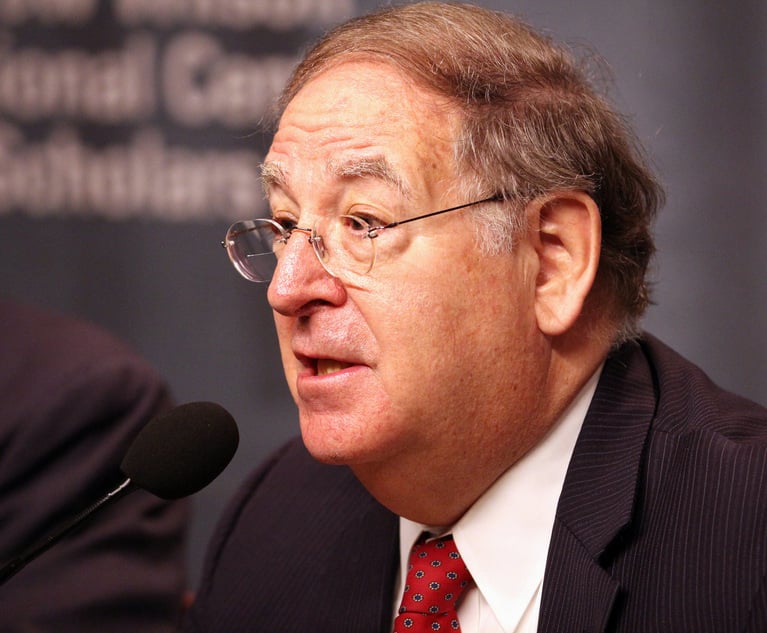 Judge J. Harvie Wilkinson III, of the U.S. Court of Appeals for the Fourth Circuit. (Photo: Diego M. Radzinschi/ALM)
Judge J. Harvie Wilkinson III, of the U.S. Court of Appeals for the Fourth Circuit. (Photo: Diego M. Radzinschi/ALM) The Marble Palace Blog: A Famed Federal Judge Pens a Romance Novel. Yes, a Romance Novel.
A romance novel by Judge Wilkinson raises eyebrows, but he says creative writing helps him as a judge and makes his legal writing fresher and more accessible.
May 19, 2022 at 02:14 PM
4 minute read
Thank you for reading The Marble Palace Blog, which I hope will inform and surprise you about the Supreme Court of the United States. My name is Tony Mauro. I've covered the Supreme Court since 1979 and for ALM since 2000. I semiretired in 2019, but I am still fascinated by the high court. I'll welcome any tips or suggestions for topics to write about. You can reach me at [email protected].
J. Harvie Wilkinson III is one of the best-known federal judges who is not a Supreme Court justice. He almost became a justice, joining the shortlist of possible successors to several retiring justices. Wilkinson, a judge on the U.S. Court of Appeals for the Fourth Circuit at age 77, is also one of the most sought-after pipeline judges for incoming Supreme Court law clerks.
Lesser known is Wilkinson's prolific side hustle as a writer, and not just a writer of court opinions. He clerked for Justice Lewis Powell in 1971 and 1972, and then wrote a book titled "Serving Justice" about his clerkship–one of the first books of that kind. Five other books ensued, on topics ranging from segregation and affirmative action, to a memoir of the 1960s.
Now comes his latest book, "Love at Deep Dusk: A Pennsylvania Story," a romance novel! It is hard to recall any other book of that genre written by a federal judge. So, I asked him why a novel.
"I actually believe creative writing has helped me as a judge," Wilkinson said. "I think it makes my legal writing fresher and more accessible. It also opens all kinds of windows into people and settings that one does not always get in the tunnel vision of a case. The law will always remain my first priority, but I cannot describe to you how liberating it felt to be able to write without footnotes or the need to get a second or third vote. I believe deeply in the constraints on the judiciary, but sometimes one needs to just run free in a breeze."
And how does he make time for both his legal work and his off-the-bench writing? "It's not hard, because if you absolutely love the law, as I do, and if you love creative writing, that love supplies time and energy for both," Wilkinson replied. "Your passions aid one another. I've never felt they detract."
The book begins in a small town in Pennsylvania. His main character is named Leah, and an Amazon summary of the book begins with: "Leah is on a journey across Pennsylvania, confronting questions she never thought she'd ask: Can she forgive the man who hurt her the most? If she doesn't, will she be in need of forgiveness? Does life waste away if she doesn't find the answers? As a result of her husband's betrayal and deaths in the family, Leah forges through long stretches of her life alone. She is torn between her profession and motherhood, torn between her affection for her small town and the exhilarating pace of life in Philadelphia."
If you are wondering whether sex scenes can be found in the book, as romance novels sometimes have, legal commentator David Lat asked that question, and Wilkinson replied, "Sex is a powerful motif in the novel, but sometimes it's more powerful if it's implicit. I made a deliberate decision not to make it explicit—and I would have been untrue to my characters, had I done otherwise."
Finally, I asked Wilkinson what kind of feedback he has gotten to his book.
"My colleagues and family have mostly been very supportive," Wilkinson said. "A few friends have said it was 'undignified' for a judge to be writing a love story. And a few think 'well, he's that daffy old uncle in the attic, we'll just let him do what he wants.'"
NOT FOR REPRINT
© 2025 ALM Global, LLC, All Rights Reserved. Request academic re-use from www.copyright.com. All other uses, submit a request to [email protected]. For more information visit Asset & Logo Licensing.
You Might Like
View All
Who Are the Judges Assigned to Challenges to Trump’s Birthright Citizenship Order?

‘Undermines the Rule of Law’: Retired US Judges Condemn Trump’s Jan. 6 Pardons

'If the Job Is Better, You Get Better': Chief District Judge Discusses Overcoming Negative Perceptions

'Thoughtful Jurist': Maryland US District Senior Judge Messitte Dies After Short Illness
4 minute readTrending Stories
Featured Firms
Law Offices of Gary Martin Hays & Associates, P.C.
(470) 294-1674
Law Offices of Mark E. Salomone
(857) 444-6468
Smith & Hassler
(713) 739-1250








